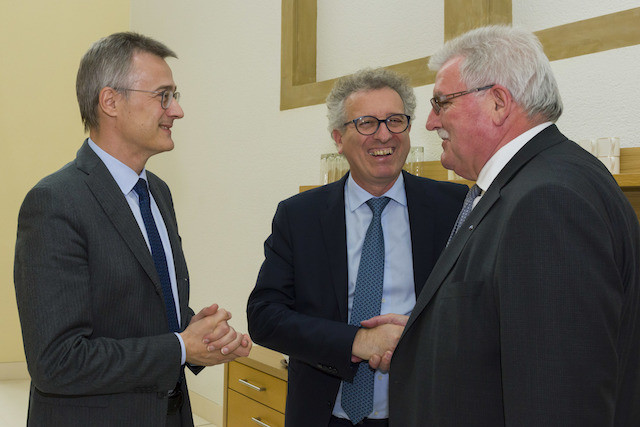The leak of documents belonging to Panamanian law firm and corporate service provider Mossack Fonseca in late 2015 raised many questions. However, as yet, this data has resulted in few prosecutions globally.
More than 214,000 financial businesses were named in the documents, with Luxembourg accounting for 403 intermediaries, principally trust firms, wealth managers, and lawyers. There was also mention of some famous client names including politicians, sportspeople and actors.
Little new information resulted from the visit of the three members of the European Parliament’s Committee of Inquiry into Money Laundering, Tax Avoidance and Tax Evasion (PANA). They spoke to public and private sector players during their visit, including members of the government, including Pierre Gramegna, the finance minister; representatives of the financial sector regulator the CSSF; and professional services firms KPMG and PwC, and the bank HSBC.
In a press conference, Werner Langen, the PANA commission president, was broadly supportive of the Luxembourg government’s response to heightened concerns about illegal tax evasion. He welcomed that since the global financial crisis, law and regulations have been brought into line with international norms.
Only 1 in 5 being interviewed
However, he sought to keep the pressure on, pointing out that only 73 of 403 Luxembourg firms highlighted in the Panama Papers are in the process of being interviewed by the CSSF. This is despite the commission having written to every firm requesting that they meet the regulator.
Eyebrows were raised by one of the 330 being the lawyer and culture secretary Guy Arendt. He denies having received the letter. Langen said he would check that the invitations had been sent correctly.
A stir was also created by a report on the radio station 100,7 that a law firm had been contacted by a state employee to recommend they ignore PANA’s request to meet them during the 2-3 March visit. The government did not wish to comment on this report.
Langen also regretted their inability to get in touch with Carlos Zeyen, the Luxembourg ex-vice president of Eurojust, ex-head of Luxembourg’s anti money laundering unit, and ex-lawyer. Zeyen has resigned from his role with Eurojust in 2013 after coming under pressure from the German press regarding questions about his time as a lawyer.
Doubts were also raised by the panel as to whether the CSSF had sufficient staff to investigate all aspects of the financial sector. The government rejects this criticism, pointing to the recent waves of hiring which have brought the number of regulatory staff to 700.
The PANA committee is working towards the publication of a report in which it will make recommendations for the EU, member states and businesses regarding tax evasion and tax avoidance. Luxembourg was just the latest country to be visited as part of their investigations.
